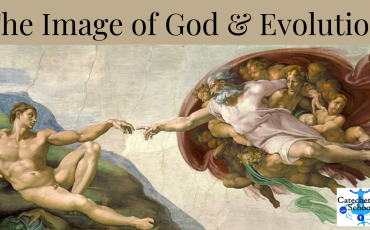What the Church says about Catechesis
What the Magisterium and the People of God think about catechesis.






Directory for Catechesis
“Catechesis is an essential part of the broader process of renewal that the Church is called to bring about in order to be faithful to the command of Jesus Christ to proclaim always and everywhere his Gospel (cf. Mt 28:19). Catechesis participates according to its own nature in the effort of evangelization, in order that the faith may be supported by an ongoing maturation and express itself in way of life that must characterize the very being of the disciple of Christ. Because of this, catechesis is related to the liturgy and to charity in making evident the essential unity of the new life which springs forth from Baptism” (Directory for Catechesis, 1).
St. John Paul II
“The primary and essential object of catechesis is…to reveal in the Person of Christ the whole of God's eternal design reaching fulfillment in that Person. It is to seek to understand the meaning of Christ's actions and words and of the signs worked by Him, for they simultaneously hide and reveal His mystery. Accordingly, the definitive aim of catechesis is to put people not only in touch but in communion, in intimacy, with Jesus Christ: only He can lead us to the love of the Father in the Spirit and make us share in the life of the Holy Trinity” (Catechesi Tradendae, 5).
Pope Francis
“We must not think that in catechesis the kerygma gives way to a supposedly more “solid” formation. Nothing is more solid, profound, secure, meaningful and wisdom-filled than that initial proclamation. All Christian formation consists of entering more deeply into the kerygma, which is reflected in and constantly illumines, the work of catechesis, thereby enabling us to understand more fully the significance of every subject which the latter treats. It is the message capable of responding to the desire for the infinite which abides in every human heart” (Evangelii Gaudium, 165).
St. Paul VI
“Evangelization thus exercises its full capacity when it achieves the most intimate relationship, or better still, a permanent and unbroken intercommunication, between the Word and the sacraments...It is indeed true that a certain way of administering the sacraments, without the solid support of catechesis regarding these same sacraments and a global catechesis, could end up by depriving them of their effectiveness to a great extent. The role of evangelization is precisely to educate people in the faith in such a way as to lead each individual Christian to live the sacraments as true sacraments of faith- and not to receive them passively or reluctantly” (Evangelii Nuntiandi, 47).
St. Augustine of Hippo
“Consequently, inasmuch as there is nothing more adverse to love than envy, and as pride is the mother of envy, the same Lord Jesus Christ, God-man, is both a manifestation of divine love towards us, and an example of human humility with us, to the end that our great swelling might be cured by a greater counteracting remedy. For here is great misery, proud man! But there is greater mercy, a humble God! Take this love, therefore, as the end that is set before you, to which you are to refer all that you say, and, whatever you narrate, narrate it in such a manner that he to whom you are discoursing on hearing may believe, on believing may hope, on hoping may love” (De Catechizandis Rudibus, 8).
St. Paul
"Let the word of Christ dwell in you richly, teaching and admonishing one another in all wisdom, singing psalms and hymns and spiritual songs, with thankfulness in your hearts to God" (Colossians 3:16).
Why Learn With Us?
Qualified & Dedicated Instructors
College Level Courses at a Fraction of the Cost
A Prayerful Approach to Learning
Pray. Learn. Teach.
Sign up to be notified when new courses become available!
Courses
Courses on timeless and timely subjects to form you into the catechist needed today.
Catechist Toolbox
Free resources for teaching timely and timeless topics to your children, students, and parishioners.

Receive FRESH content directly to your inbox!














